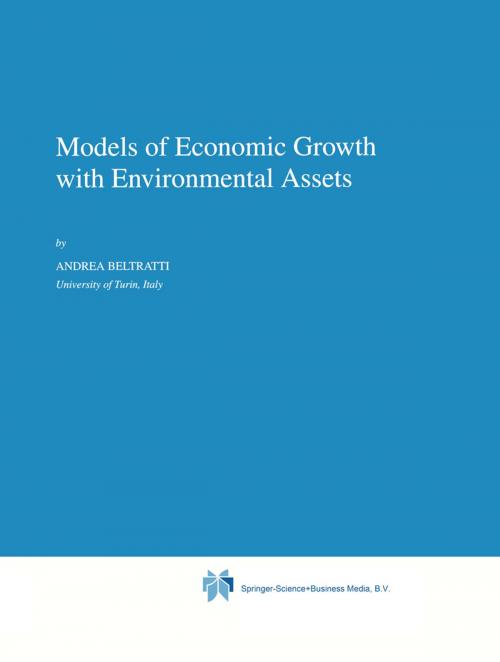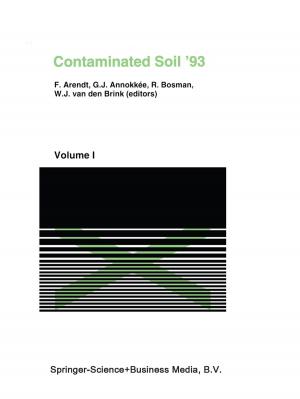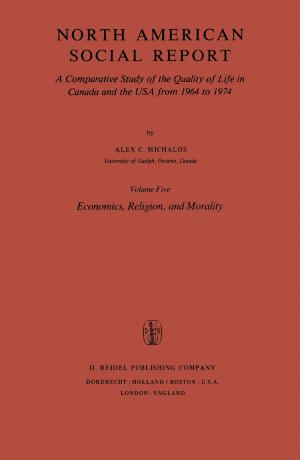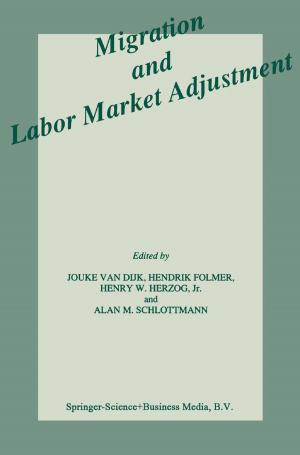Models of Economic Growth with Environmental Assets
Business & Finance, Economics, Economic Development| Author: | A. Beltratti | ISBN: | 9789401723022 |
| Publisher: | Springer Netherlands | Publication: | March 9, 2013 |
| Imprint: | Springer | Language: | English |
| Author: | A. Beltratti |
| ISBN: | 9789401723022 |
| Publisher: | Springer Netherlands |
| Publication: | March 9, 2013 |
| Imprint: | Springer |
| Language: | English |
The connection between economic growth and the quality of the environment is a popular subject. Since the second half of the 1980s, there has been an increasingly frequent use of the term "sustainable development", to refer to the preoccupation that the production of goods and services may decrease standards of living. It is natural to analyze this question from the point of view of economic models, which may be helpful in at least identifying the main factors behind such preoccupations and perhaps in suggesting policy measures. Indeed, models are useful to discuss some relevant factors, like the structure of production of the economy, the type of preferences and goals pursued by agents, and the elements of uncertainty. This monograph will consider some of these themes: there will be a study of the analytical framework which can be used for the purpose of defining and analyzing sustainability, and some discussion of how to calibrate a restricted version of the model to empirical data. There will be also some analysis about which type of uncertainty should be incorporated into the model, and which objective functions may be useful for policy purposes. Also, there will be discussions about the key variables which should be included, and some description of a general framework.
The connection between economic growth and the quality of the environment is a popular subject. Since the second half of the 1980s, there has been an increasingly frequent use of the term "sustainable development", to refer to the preoccupation that the production of goods and services may decrease standards of living. It is natural to analyze this question from the point of view of economic models, which may be helpful in at least identifying the main factors behind such preoccupations and perhaps in suggesting policy measures. Indeed, models are useful to discuss some relevant factors, like the structure of production of the economy, the type of preferences and goals pursued by agents, and the elements of uncertainty. This monograph will consider some of these themes: there will be a study of the analytical framework which can be used for the purpose of defining and analyzing sustainability, and some discussion of how to calibrate a restricted version of the model to empirical data. There will be also some analysis about which type of uncertainty should be incorporated into the model, and which objective functions may be useful for policy purposes. Also, there will be discussions about the key variables which should be included, and some description of a general framework.















